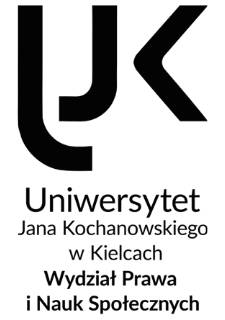Biblioteka Cyfrowa Uniwersytetu Jana Kochanowskiego udostępnia 13 367 obiektów cyfrowych
Obiekt
Tytuł: Wpływ Rady Europy na transformację prawno-ustrojową Republiki Azerbejdżanu
Twórca:
Tytuł odmienny:
Abstrakt:
The subject of this dissertation was determining the influence of the Council of Europe on the legal and political transformation of the Azerbaijan Republic. Particular emphasis was placed on the analysis of the impact of the Council of Europe in this respect during the accession and monitoring procedures. The justification for taking up this issue is related to the fact that each admission of a new country as a member of the Council becomes an excellent opportunity to analyze the path traveled and assess the consequences of membership in the Council for political changes and transformations of the legal system. This issue required a comprehensive analysis also because so far there has been no monographic study that would address this issue in detail. It was therefore decided that this work would be an attempt to fill the important gap that existed here. Most of the previous analyzes on this subject were scattered information, which can be found in general studies discussing the political system of the Republic of Azerbaijan. Although they make a valuable contribution to the analysis of transformations in this country, they do not contain any references to the research problem undertaken in this work.
Doctoral thesis outline This work consists of an introduction, keywords, four chapters, conclusions and conclusion.
Chapter 1 concerns the general characteristics of the Council of Europe and the mechanisms of its influence on the legal and political systems of the member states. It presents the origins of the Council of Europe and analyzes its structure and the rules for obtaining membership in this international organization. The axiological system of the CoE was also described, with particular emphasis on the legal and political sphere (legally binding standards, standards of the so-called "soft law" nature). The mechanisms of the influence of the CoE on the legal and political transformations of the member states (accession procedure, monitoring procedure) were also presented, as well as the institutions of the system of The Council of Europe influencing the legal and political transformations of member states, i.e. the Committee of Ministers and bodies of intergovernmental cooperation, the Parliamentary Assembly, the Congress of Local and Regional Authorities, the European Court of Human Rights, the Commissioner for Human Rights, the European Commission for Democracy through Law (Venice Commission), the Secretariat General.
Chapter 2 shows the influence of the Council of Europe on the legal transformation of the Azerbaijan Republic during the accession procedure. It took into account such elements as: gaining independence by the Azerbaijan Republic after the collapse of the Soviet Union and the evolution of the political situation; application for membership of the Azerbaijan Republic in the Council of Europe; the Azerbaijan Republic obtaining the status of "special guest" in the Council of Europe; course of the accession procedure with regard to the Republic of Azerbaijan; legal transformations in the Republic of Azerbaijan carried out during the accession procedure; decision to admit the Republic of Azerbaijan to the Council of Europe; obligation accepted by the Republic of Azerbaijan in the legal and constitutional area in connection with membership in the Council of Europe. Chapter 3 shows the influence of the Council of Europe on the legal transformation of the Republic of Azerbaijan during the monitoring procedure. The following elements were analyzed: initiation of the monitoring procedure towards the Republic of Azerbaijan; course of the monitoring procedure towards the Republic of Azerbaijan; legal and political transformations in the Republic of Azerbaijan carried out during the monitoring procedure in the following areas: democracy and political pluralism; division of powers; the rule of law and its formal guarantees; independence of courts and judges; prohibition of discrimination; prevention of torture and degrading treatment or punishment; fight against racism; protection of social rights; protection of minorities; fight against money laundering. Chapter 4 contains an assessment of the effectiveness of the influence of the Council of Europe and other international organizations on the legal and political transformation of the Republic of Azerbaijan. It includes an analysis of the cooperation of the Council of Europe with other international organizations in terms of influencing the legal and political transformation of the Republic of Azerbaijan (European Union, Organization for Security and Co-operation in Europe); assessing the effectiveness of the influence of the Council of Europe and other international organizations on the legal and political transformation in the Republic of Azerbaijan, as well as presenting trends in the legal and political transformation in the Republic of Azerbaijan. Research methods The basic research method used in the work is the legal-dogmatic method, based on which the analysis of legal documents was carried out, in particular international agreements (treaties, conventions), as well as documents of the so-called "soft law" (e.g. recommendations of the Committee of Ministers of the Council of Europe, opinions of the Venice Commission). The analysis of the European Convention on Human Rights was of the particular importance, as well as the case law of the European Court of Human Rights. The constitution and legislation of the Republic of Azerbaijan were also analyzed using this method.
Uwagi:
Zawiera bibliografię Streszcz. ang.
Identyfikator:
oai:bibliotekacyfrowa.ujk.edu.pl:10764
Katalog komputerowy:
Język:
Uzyskany tytuł:
Data uzyskania stopnia:
Instytucja nadająca tytuł:
Uniwersytet Jana Kochanowskiego w Kielcach
Promotor:
Jaskiernia, Jerzy (1950- ) Paruch, Stanisław Adam. Promotor pomocniczy
Recenzent:
Bisztyga, Andrzej ; Szmulik, Bogumił Przywora, Bogusław
Dziedzina nauki:
Dyscyplina naukowa:
Wydział:
Wydział Prawa i Nauk Społecznych
Typ:
Prawa dostępu:
tylko w Oddziale Informacji Naukowej
Stan publikacji:
Kolekcje, do których przypisany jest obiekt:
- Biblioteka Cyfrowa Uniwersytetu Jana Kochanowskiego > Rozprawy doktorskie > Wydział Prawa i Nauk Społecznych
Data ostatniej modyfikacji:
29 sty 2026
Data dodania obiektu:
19 cze 2024
Liczba wyświetleń treści obiektu:
0
Wszystkie dostępne wersje tego obiektu:
https://bibliotekacyfrowa.ujk.edu.pl/publication/11389
Wyświetl opis w formacie RDF:
Wyświetl opis w formacie OAI-PMH:
| Nazwa wydania | Data |
|---|---|
| Kowalczyk, Szymon, Wpływ Rady Europy na transformację prawno-ustrojową Republiki Azerbejdżanu | 29 sty 2026 |

